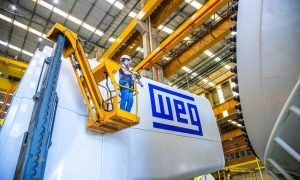Qatar contractors say wage system reveals ‘payment crisis’
Oil crisis has made it hard for companies to pay workers on time – report

Contractors in Qatar have said that the introduction of the wage protection system (WPS) has revealed a longstanding ‘payment crisis’ in the country, it has been reported.
While the new system has helped to ensure that hundreds of thousands of construction workers now get their salaries on time, contractors say that the oil price crisis has made it harder for companies to pay workers via direct bank deposits in a timely manner, as per the new law.
Finance-related contract disputes have halted work on major Qatari projects for a number of years, with contractors forced to deal with clients missing payments or not paying at all.
“When the contractor runs dry on funds due to payment delays, he doesn’t have any choice in not paying the workers. They simply can’t pay money they don’t have. Bank finances have a limit and wages mostly (are) financed by the project cash flow,” Zeyad Al Jaidah, managing director and co-founder of the Qatar-based systems integrator TechnoQ, told Doha News.
The WPS was signed into law by Qatar’s Emir in February 2015 and it came into effect in November that year. As of June 2016, the country’s labour ministry said that 1.6 million residents were covered under the system.
However, thousands of workers continue to wait for WPS to be implemented at their companies, the report said. This is because many companies cannot afford to comply with the law for several reasons, said Vasanth Kumar, CEO of Arabian MEP, a Qatari subcontracting firm specialising in MEP services.
While he welcomed the introduction of the scheme and asserted that Arabian MEP employees are paid on time, Kumar explained that some companies in Qatar are suffering because of rapid overexpansion and lack of planning, while others are suffering due to taking on projects at low prices, which means that they’re losing money and don’t have cash to pay their bills.
Another issue highlighted by contractors in the country is that clients often postpone contracts that have already been awarded, which leads to a loss of revenue and negative cash flow due to the need to hold on to surplus manpower.
To resolve some of these issues, Kumar told Doha News that clients and construction companies use FIDIC (International Federation of Consulting Engineers) contract forms which would empower the engineer (or client representative) to certify completed works onsite on a fair assessment basis and issue payment certificates on time.



















